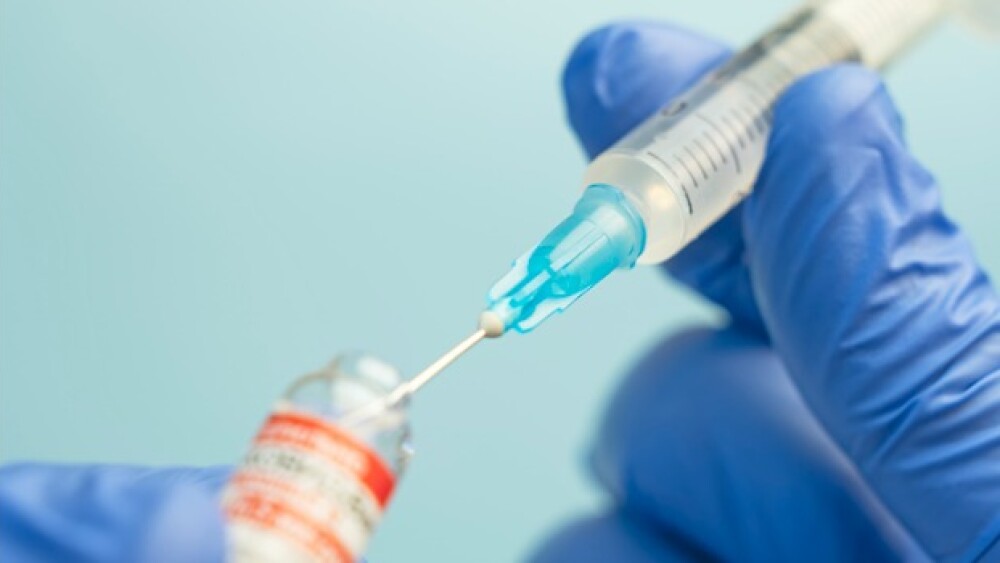The Phase III trial, which will test the companies’ mRNA-based personalized cancer vaccine and Merck’s blockbuster Keytruda checkpoint inhibitor, is slated for completion by the fall of 2029.
Pictured: Needle drawing up mRNA vaccine/iStock, Diy13
Merck and Moderna announced Wednesday the initiation of a pivotal Phase III high-risk melanoma trial combining the companies’ mRNA-based personalized cancer vaccine with Merck’s blockbuster Keytruda checkpoint inhibitor.
After a successful Phase IIb in stage III/IV melanoma patients with high risk of recurrence after surgery, Phase III is expanding the population to include stage IIb-IV patients. The study will enroll around 1,089 patients at more than 165 sites and in over 25 countries.
The primary endpoint is recurrence-free survival. Secondary endpoints include distant metastasis-free survival and overall survival. Patients will receive either V940 (mRNA-4157), being co-developed and commercialized by Merck and Moderna, in combination with Keytruda or Keytruda alone for comparison.
Phase IIb results shared earlier this year showed the cancer vaccine combined with Keytruda reduced risk of recurrence or death by 44% compared to Keytruda alone. Additional data in June 2023 showed the vaccine combo reduced risk of distant metastasis or death by 65% over the immunotherapy alone.
Pharma companies have turned to the adjuvant therapy approach for cancer vaccines in recent years after research and experience revealed that vaccines as a monotherapy tend to produce only modest benefits in patients.
The companies’ vaccine utilizes mRNA technology and is encoded with up to 34 neoantigens personalized for the unique mutation of each patient’s tumor. The neoantigen sequences are translated, naturally processed and then presented in the body to activate the adaptive immune system. Tumor-specific T-cell responses are stimulated to attack the tumor with an increased response thanks to the mechanism of immune boosting Keytruda.
Following surgical resection, patients in the Phase III study, dubbed V940-001, will receive the vaccine every three weeks and Keytruda every six weeks for up to nine cycles, or approximately a year.
It’s shaping up to be a long haul as the primary completion date for the study isn’t slated until October 2029. Analysts had previously thought a faster path to approval was not likely, as the FDA rarely grants the designation for adjuvant treatments.
However, the companies said in Wednesday’s announcement that the FDA has granted Breakthrough Therapy Designation, the precursor to eligibility for Accelerated Approval and Priority Review, if criteria are met. The European Medicines Agency has also granted Priority Medicines scheme for the V940/Keytruda combo for melanoma.
Plans are already in the works to expand development of the partners’ vaccine plus immunotherapy program to additional tumor types, including non-small cell lung cancer.
Kate Goodwin is a freelance life science writer based in Des Moines, Iowa. She can be reached at kate.goodwin@biospace.com and on LinkedIn.






